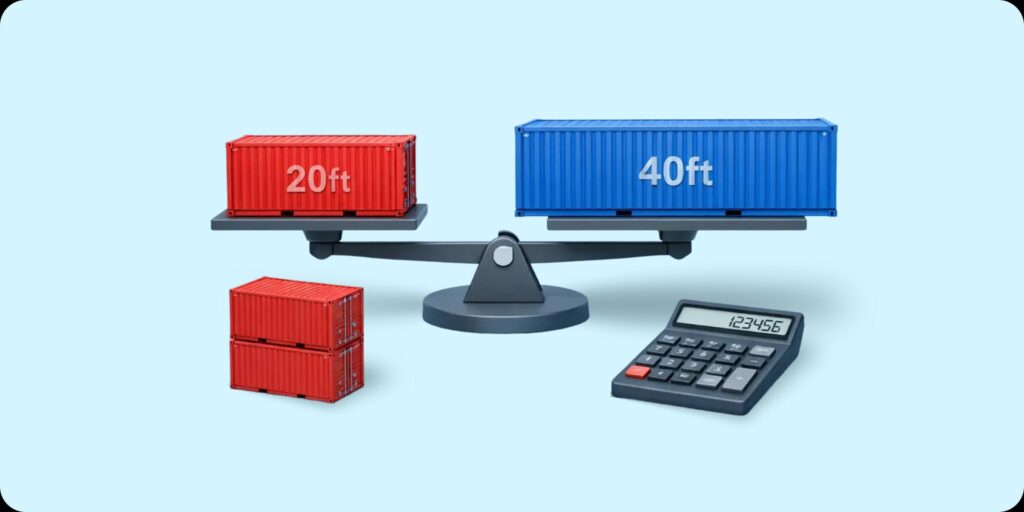Key Takeaways
- Carbon emissions fees are pressuring the shipping industry to reduce fuel use and adopt cleaner practices, as fuel costs directly impact operating margins.
- Japan and the EU are leading with carbon pricing, with $56/ton in Japan starting 2025 and an emissions trading system in the EU, to financially motivate emission reductions.
- Anticipation of these taxes has triggered major investments in green shipping tech, including AI routing, predictive maintenance, and wind-powered wing sails.
- Fully electric, autonomous cargo ships are emerging as zero-emission alternatives, marking a shift toward sustainable vessel design.
- Wisor helps forwarders stay competitive in this changing landscape with faster quoting, optimized routing, and emissions-conscious shipment planning, all in one AI-powered platform.
As the world begins to truly grasp the effects of climate change, governments around the world are looking at top-polluting industries to answer for the damage. One of the main targets by climate activists has been to reduce carbon emissions.
A popular solution in recent years has been a carbon tax, a fee that’s calculated as a direct result of a company’s carbon emissions. Carbon taxes bring a cost incentive for companies to lower their carbon emissions.
These carbon taxes can apply to all aspects of the global supply chain but are having the greatest impact on the shipping industry. Unlike other parts of the supply chain, the cost of shipping and transportation is heavily reliant on fuel costs.
With 90% of all goods being transported by cargo ships, avoiding the high costs of carbon taxes has become a top priority for the shipping industry. As carbon taxes become more popular, the shipping industry will need to adapt quickly in order to stay afloat.
Did You Know?
The EU’s Emissions Trading System (ETS) began applying to shipping in 2024, covering 50% of emissions on extra-EU voyages and 100% for intra-EU routes, ramping up through 2026.
Emissions Targets for the Shipping Industry
The shipping industry is responsible for 2.5% of the world’s CO2 emissions, or about 940 million tons of CO2 per year. To combat these stark numbers, the International Maritime Organization recently set a target to reduce these emissions by 50% by 2050.
Despite the global demand for a carbon tax, there isn’t a comprehensive global tax, leaving the responsibility up to individual countries.
Japan is one of the first major economies to impose such a tax. Starting in 2025, Japan will require cargo ships to pay $56 per ton of CO2, with the tax increasing every 5 years.
The EU also announced a similar plan to start in 2023. Under the EU plan, cargo ships will pay for CO2 emission allowances, creating a market for CO2 emissions.
Both plans create a system that incentivizes carbon emission reductions while also giving the shipping industry time to adapt before the new taxes kick in. Fortunately, the carbon tax has already inspired massive investments in clean technology from the shipping industry. The shipping industry is responsible for 2.5% of the world’s CO2 emissions, or about 940 million tons of CO2 per year.
Expert Tip: Future-Proof Your Freight Pricing by Embedding CO₂ Surcharges and Emissions Data Today
- If you’re quoting ocean freight to or from the EU or Japan, begin incorporating CO₂ surcharge line items into your pricing sheets. Use conservative estimates: $56/ton in Japan starting 2025, and EU ETS rates which fluctuate weekly.
- In procurement, pressure carriers to disclose emission profiles per vessel. Choose partners already investing in fuel-efficient vessels or AI-optimized routing.
- For tech teams, set up logic flags to identify CO₂ cost exposure by origin/destination pairs. This will help ops flag lanes where upcoming fees will impact cost competitiveness.
- When comparing carriers or routings, add a per-TEU carbon intensity metric (grams CO₂ per km) to your evaluation matrix. This metric can drive both quoting accuracy and sustainability reports.

Insight by
Talya Sasson
Head of Product, Wisor
Green Innovations for the Shipping Industry
There’s no doubt that the threat of carbon taxes has received the desired effect. Hundreds of companies have taken the call to action and have already created some exciting new technologies. The solutions are as varied as they are exciting and tackle many different aspects of the shipping industry.
Wing Sails
Shipping technology is almost taking a step back with the introduction of wing sails. These massive sails are meant to capture wind power like a traditional sailboat to reduce a ship’s carbon emissions.
The 21st-century take on wing sails is much more advanced than previous models. These types of sails can change their shape and direction to optimize wind power without the need for human interference.
AI Shipping Practices
AI is breaching into every industry, and the shipping industry is no exception. With more than $931 million invested in shipping AI solutions in 2022 alone and with that figure expected to rise to $2.7 billion by 2027, the shipping industry is making a massive bet on AI.
Shipping experts expect AI to bring new levels of efficiency and autonomy not seen before by the industry. Through real-time tracking data, AI can create shipping routes optimized for speed and carbon emission reduction.
AI isn’t just being used to save on fuel costs. AI can be used to monitor the ship’s health and predict needed repairs. By mitigating maintenance issues, AI can improve a ship’s operational life expectancy. This can further reduce the carbon emissions inherent in shipping delays, ship maintenance, and new ship manufacturing. AI is breaching into every industry, and the shipping industry is no exception.
Electric Cargo Ships
If you thought cars were the only vehicles getting the electric treatment, then you’re sorely mistaken. In February 2022, the world’s first fully electric and completely autonomous cargo ship took its maiden voyage.
While the carbon emissions in manufacturing the ship are comparable to traditional cargo ships, the new fully electric cargo ship will emit nearly zero emissions throughout its life.
Carbon Taxes Have Inspired a Revolution
Carbon tax enthusiasts should be excited by the effects the tax has already had on the shipping industry. While only some countries have officially agreed to implement a carbon tax in the near future, the mere threat of the tax has inspired an innovation revolution in the shipping industry.







